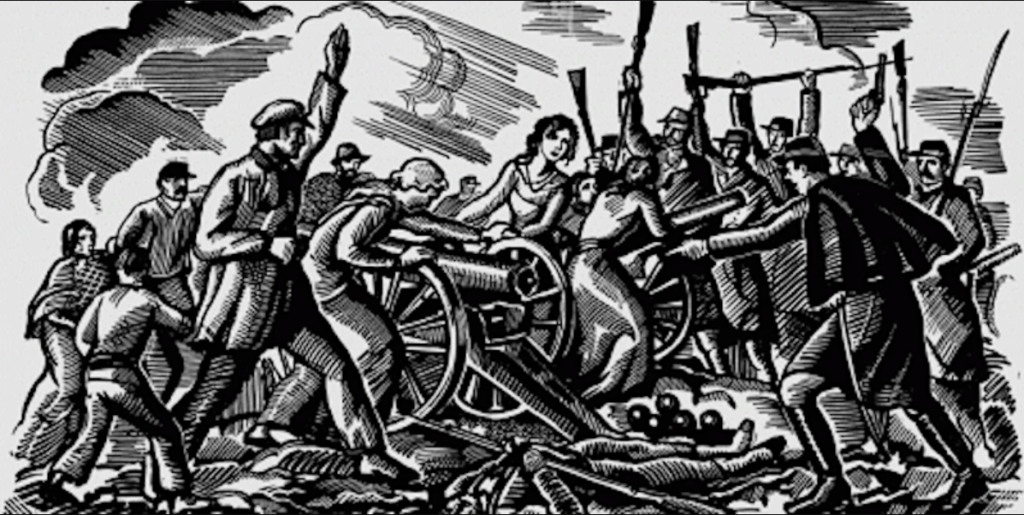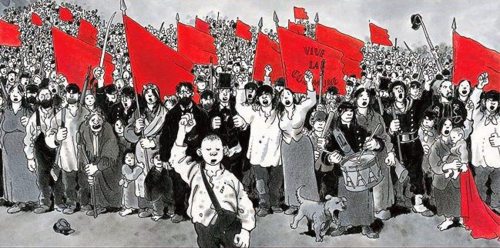Instructor: Mason Herson-Hord
10-WEEK ONLINE COURSE EXPLORING MARXISM, DIRECT DEMOCRACY, AND Revolutionary STRATEGY, next dates offered to be announced.
To take as a self-directed flex course, register here instead. Also available for college credit; inquire to social-ecology@mail.mayfirst.org for details.

This course is a deep study of Marxist political theory and its dynamic, contradictory relationship to the politics of direct democracy.
While Marx himself championed the sweeping democratization of society, he rarely discussed the particulars of a future democratic political structure in any detail. His disciples among subsequent generations of revolutionaries had to bridge the ambiguities of Marx’s political theory with the practical necessity of determining how power is to be organized in real movements seeking to change the world. This led to a sweeping diversity of ideas and experiments in how proletarian democracy was to be institutionalized, with profoundly mixed results. As the British Marxist Ralph Miliband observed, “the exercise of socialist power remains the Achilles’ heel of Marxism.” We will explore Marxist thought and practice through history as it grapples with this fundamental question: what are the political forms of the class struggle?—and do some grappling with it ourselves. Marxist theory may not have produced the most definitive answers, but its contradictions and its tensions with direct democratic practice are uniquely fruitful in helping us think through these problems ourselves when it comes to the project of building a genuinely democratic society.
Course reading assignments primarily feature primary source materials drawn from the writings of revolutionary theorists and activists, while lecture materials provide their historical and intellectual context. The Marxist theorists assigned include Marx, Engels, Lenin, Bukharin, Pannekoek, Sylvia Pankhurst, Luxemburg, Trotsky, Mao, C.L.R. James, and a number of others, while historical material will cover the Paris Commune, the rise of social democracy, the Russian Revolution, the German Revolution and the broader international post-World War I council movement, the Chinese Revolution, the Eurocommunist turn, and the more recent radical democracy movements of India, Brazil, Venezuela, Mexico, and Syria.
Students will seek to challenge and rethink their ideas through discussion and reading of works spanning one hundred and fifty years of radical thought on revolution, political power, class struggle, and democracy. The objectives of this ten-week course are to develop a robust theoretical understanding of Marxist political thought, a grounding of its historical influences and impacts, and a critical perspective on its contradictions, problems, and insights.


